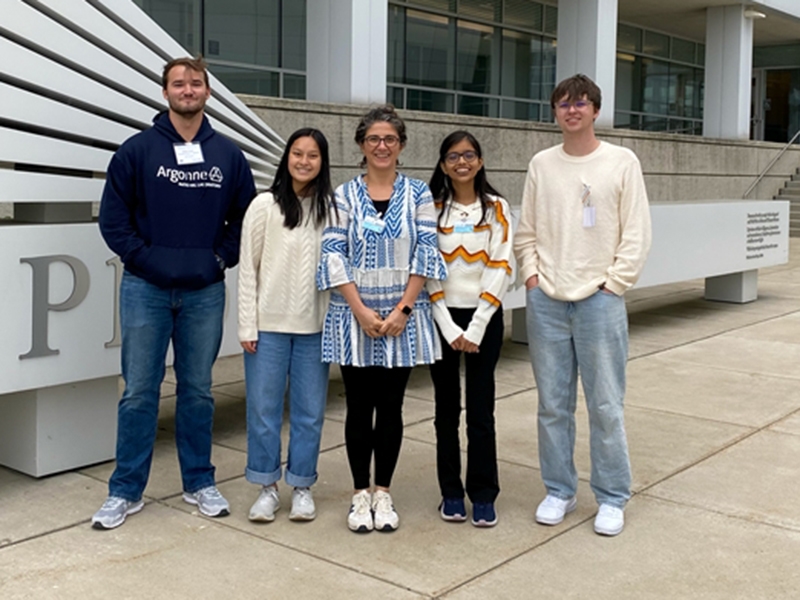When Matt Clay, department chair of mathematical sciences, asked Tulin Kaman, associate professor of mathematical sciences, to lead a group of U of A mathematics undergraduate students to the BRING MATH workshop, Kaman was very excited and happy to share this opportunity with U of A students because about 15 years ago she was exposed to research at the Argonne Leadership Computing Facility and started her journey as a computational mathematician at this same government laboratory.
On Aug. 1, Kaman received the acceptance letter to bring four of the mathematical sciences undergraduate students — Darren Blount, Soumya Chauhan, Ethan Estes and Anh Tran — to the workshop, which is hosted at Argonne National Laboratory on Oct. 5-6 and sponsored by IMSI. All the travel and lodging expenses of the group are covered by the Institute for Mathematical and Statistical Innovation.
The workshop purpose is to expose undergraduates to research in mathematics and statistics being done at Argonne and its connections with real world applications, and to educate them about opportunities related to the mathematical sciences which are available to them, both during summers and longer term.
During their time at the Argonne National Laboratory, the students attended panel sessions on climate sciences, data & information, quantum computing & information; visited Rapid Prototyping Laboratory, Aurora Exascale Supercomputer and Polaris Supercomputer; and attended the career panel on the first day. On the second day, the students joined the professional development breakout sessions, had tours to the Advanced Photon Source and the Center for Nanoscale Materials, and learned about the summer opportunities.
"Aurora, the ALCF's forthcoming exascale machine might be the No.1 supercomputer on the TOP500 in November 2023 list. Exa means 18 zeros, and exascale machine means the system can perform 1,018 floating point of operations per second, which will take research to the next level. I was very excited revisiting the computing facility that I performed numerical studies for turbulent mixing and combustion. One of the most fascinating moments was to actually see the quantum dots, which are the discovery of the Nobel Prize winners in Chemistry and will be very useful to humankind in the future in building better solar panels, and creating fuel by using sunlight," Kaman said.
Students interested in computational mathematics may join the trainings and skills-building opportunities by following the activities of the Kaman's Computational and Applied Mathematics Group, the university's Society for Industrial and Applied Mathematics student chapter and Association for Women in Mathematics student chapter.
Topics
Contacts
Tulin Kaman, associate professor
Department of Mathematical Sciences
479-263-7964, tkaman@uark.edu
